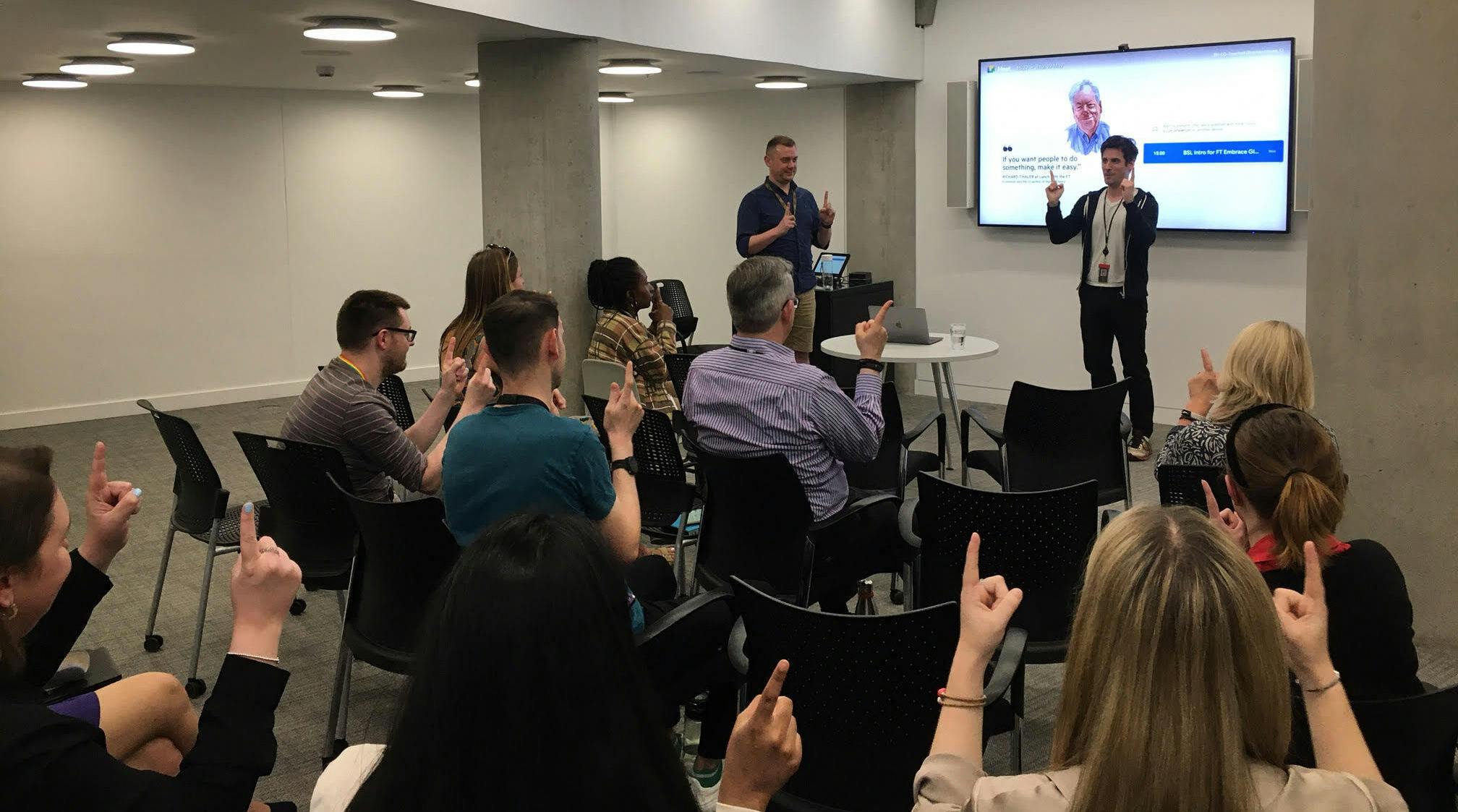
Learning British Sign Language: A Meaningful Gesture
In my years as a software engineer at the FT, the organisation has taken an increasingly proactive approach to improving its diversity and inclusivity, setting itself aspirational goals to advance the culture and broaden its representation of talent.
As a hearing person, I was naively oblivious to all the invisible work that my Deaf software engineer colleagues do in addition to their terms of contract.
The challenge presented by the small/absent intersection of a shared language between Deaf and hearing teammates makes BSL (British Sign Language) interpreters integral facilitators of workplace communication. Arranging their attendance entails a substantial amount of communicative labour for the Deaf engineer and the governmental grant is insufficient to cover their attendance for a full working week.
This issue is by no means unique to the FT, though diversity without inclusion is superficial and unsustainable, and we cannot consider ourselves inclusive while not making any personal effort of adapting to support our colleagues’ needs.
Within the Product & Technology department, it felt like we had the right attitude to try and improve this situation, if only in a small way. Via the FT’s Learning & Development team, a formal course was arranged, which ended with the class of roughly a dozen taking the BSL 101 examination.
From the course and exam, attendees achieved a level of competence and confidence in their BSL that they felt would be worth sharing further within the department. A group was formed to run informal sessions designed to raise awareness of Deaf culture and conduct participatory learning of the BSL alphabet and basic introductory signs, with the intention of bridging the inclusivity gap at the FT.
Since its beginnings in 2019, the group of presenters has grown and we have conducted over 30 sessions, increasing their scope to cover conversational BSL on everyday topics. The sessions have been attended by the most senior leaders of the Product & Technology department, and we have since opened the invitation to attendees across the entire organisation.
Learning BSL has rewarded us with insights into a different culture and a new perspective that we would otherwise not have attained. As with any language, learning BSL benefits from exposure, repetition, and making many (many) mistakes, and our Deaf colleagues have been generously patient in letting us practise.
In time and with continued effort we aim to improve our collective signing ability and increase the number of BSL learners in the department, and so make the FT an increasingly inclusive place to work.
The full version of this article can be read on the FT Product & Technology blog here.